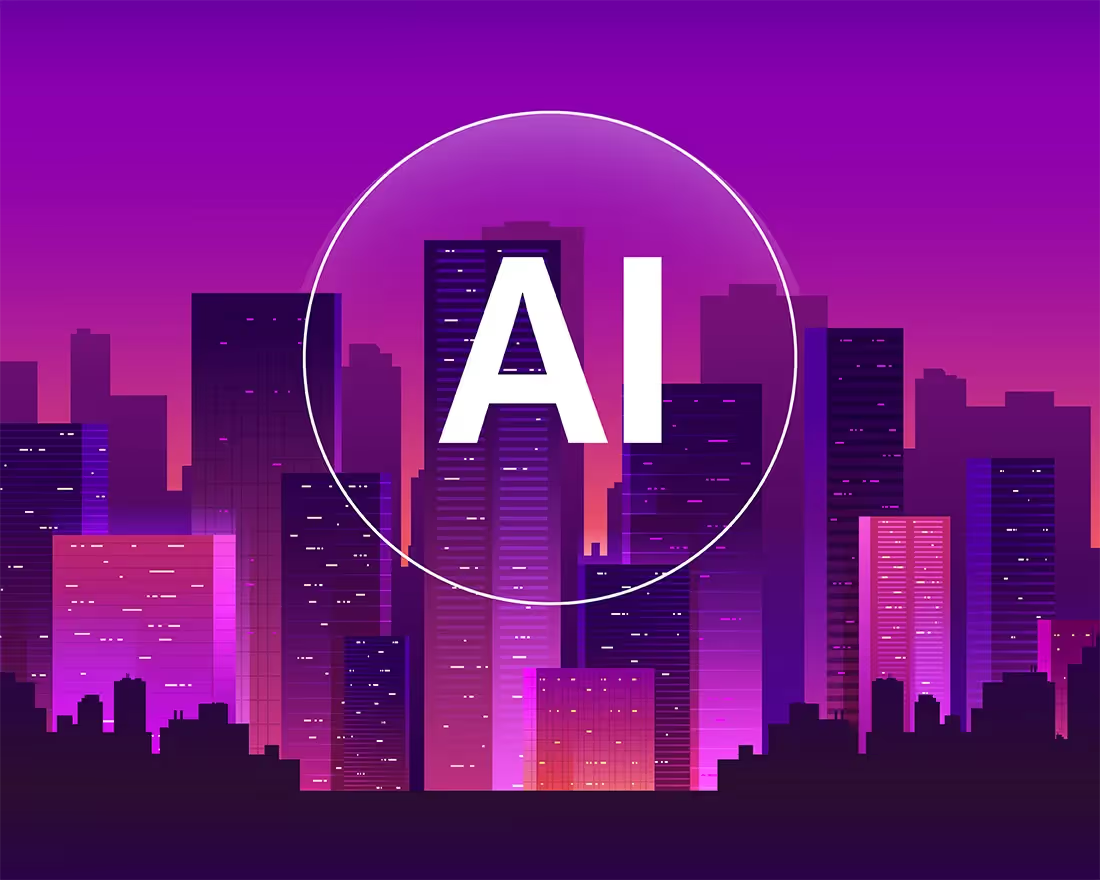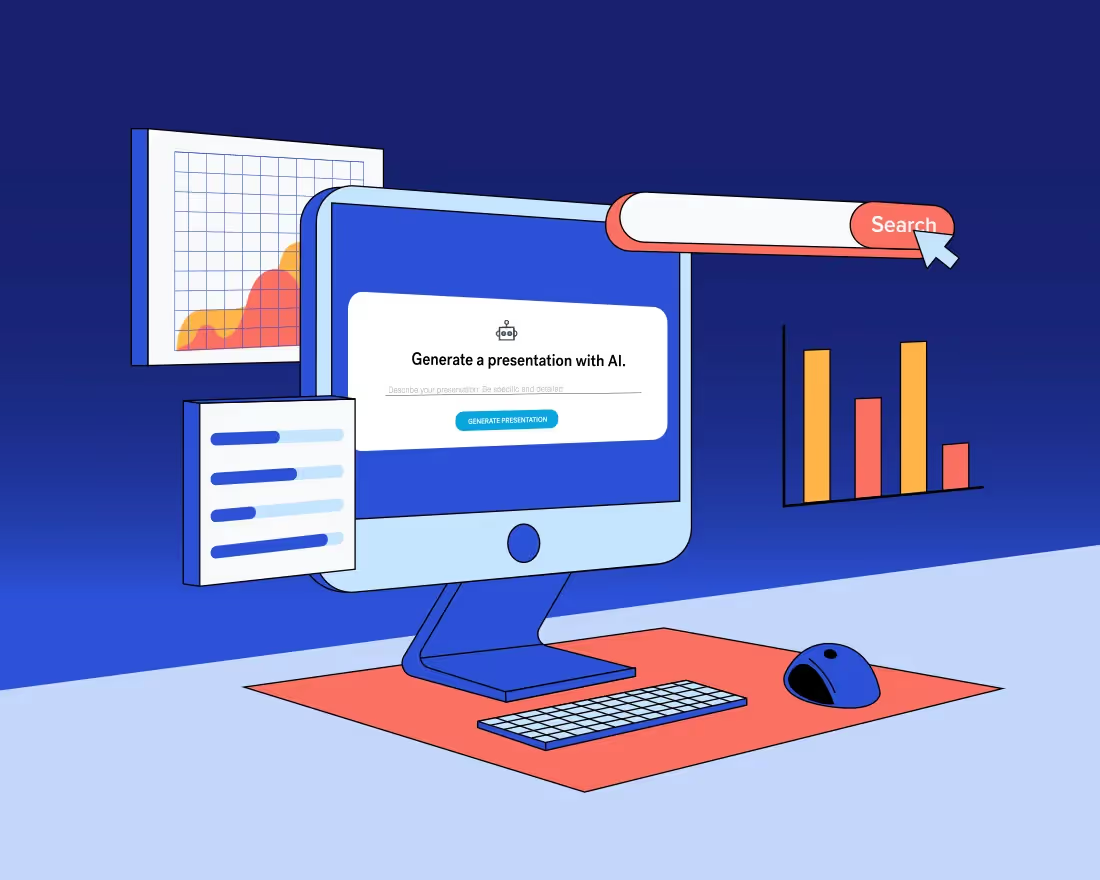
Business leaders need to keep their fingers on the pulse of what’s new in order to stay ahead of technology trends. If you fall too far behind and don’t adopt new tools and softwares, it could compromise your business goals. Imagine a company that didn’t use social media as a marketing platform— it would be a huge missed opportunity. Because of that, many managers have started to explore artificial intelligence— specifically generative AI— and what it might mean for their business.
Generative AI is a system capable of generating content or data like images, text, music, and other media in response to a single word or phrase prompt. Teams are using generative AI to help tackle repetitive, mundane tasks such as responding to emails, creating graphics or images, drafting articles, and creating presentations— among many other things.
There’s no doubt that the generative AI boom has disrupted the workplace with both its opportunities, and the question marks that come with it. To unveil more of what this technological shift means for managers and their teams, we surveyed 3,000 American managers to see how it has affected their roles. We’re breaking down the data to make sense of it all and explain what’s next for managers and businesses moving forward.
Here’s how managers can adopt AI in the workplace to improve productivity and reduce costs.
Educate and self-test to see which tools are the best fit
An astounding 95% of managers have already started using AI for work-related content, but that doesn't mean it isn't overwhelming trying to navigate where to start. The best place to start is the beginning: education and self-testing. Out of the 3,000 managers surveyed, 34% are preparing for the adoption of AI tools by educating their employees, while 22% are self-testing AI tools that may be of use to their team. Companies are at an advantage that most software will offer a free one to two week trial period. This gives managers the flexibility of trial and error to see which tools would be the biggest asset for their team before they sign up.
.avif)
Incorporating AI in the workplace might look different for every business, but 97% of managers are already having those conversations with their internal teams— which is important. Doing research on what’s out there, how it works, and what the financial commitment would be is a great way to weigh your options. Ask your team what tools they could benefit from, and why. Artificial intelligence is new for everyone, so educate yourself and make an informed decision based on your company needs.
Allocate more budget to new technology and resources
Of course, nothing comes free. Every AI software will have a price, and it’s a manager's responsibility to decide if the benefit outweighs the cost. Over 80% of the managers that participated in our survey anticipate spending resources and budget on AI programs in 2023 to improve their team’s productivity.
.avif)
As a manager, adopting AI in the workplace may mean replacing other softwares or services and reallocating existing budgets to accommodate new tools. Is there a current tool your team is using that is expendable? Similarly, if an employee has asked for additional support to do their job more effectively, AI tools could be a cost-effective way to grant more resources without adding to the team’s headcount.
Still, managers might be required to add new artificial intelligence tools to upcoming budget proposals. Just be prepared to justify the ask with quantifiable benefits, how the team anticipates using it, and the cost.
Leverage AI to increase output
AI is meant to be a collaborative partner to help teams improve productivity. An impressive 93% of managers say that they will encourage their employees to test and use AI tools if the tools will help them perform better at work. AI can help improve employee productivity and performance by expediting the brainstorming process, and giving employees a jumping off point of a working first draft allowing them to create better content in less time.
Generative AI can help marketers create a proper outline for a press release, faster. It allows sales teams to create a blueprint for sales pitch presentations that they can then use as a template and customize for each prospect. It gives social media managers access to more creative assets without creating a bottleneck for in-house graphic designers. Generative AI can also help sales teams do preliminary research on leads to learn more about their company and business needs. It can do all of this, plus a lot more.
.avif)
It’s important for managers to think of AI as a tool to enhance users’ output instead of being a system that can fully replace entire jobs and teams. Managers should adopt the softwares that will reduce the tedious busywork for their employees, giving them more time to be creative and take on new projects.
Be receptive to new job opportunities that allow the business to grow with technology
The majority of managers agree that their employees fear that AI programs will eventually lead to them being fired. However, we see AI more as an assistant than a replacement. Sure, there’s a lot that AI can do, but there’s still a lot that humans can do better. Brand authenticity, legacy knowledge, and proprietary information are not things that can be easily replicated by a computer, and it requires a knowledgeable employee to be able to work alongside the software to produce quality results.
.avif)
In reality, 90% of managers believe that generative AI tools will become more popular in the workplace as tech and other industries continue with massive layoffs. This means that we may see more job opportunities specific to AI roles. Things like AI engineers or AI quality assurance engineers can be helpful for companies who have integrated artificial intelligence into their products or services. Similarly, teams may bring on AI content managers to hone in on the most relevant prompts, produce the best results, and make necessary edits to the content to maintain brand integrity. Being open to, and aware of, these future opportunities can help managers stay ahead of the curve.








